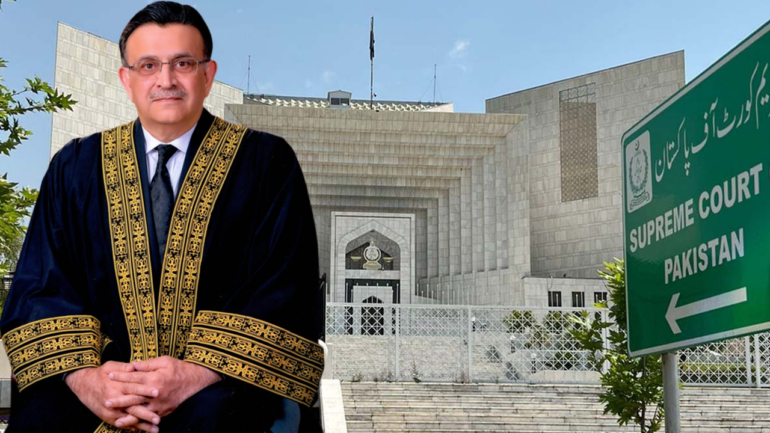The Supreme Court of Pakistan has reserved its verdict on a plea filed by Pakistan Tehreek-e-Insaf (PTI) Chairman Imran Khan challenging amendments made to the National Accountability Bureau (NAB) laws by the Pakistan Democratic Movement (PDM) government during its previous tenure.
The three-member apex court bench, headed by Chief Justice of Pakistan (CJP) Umar Ata Bandial and including Justice Mansoor Ali Shah and Justice Ijazul Ahsan, heard the petition regarding the amendments introduced in the National Accountability Ordinance (NAO), 1999.
During the proceedings, CJP Bandial remarked that the verdict would be delivered before his impending retirement on September 16. He is set to be succeeded by Justice Qazi Faez Issa.
The Additional Attorney General, representing AGP Mansoor Usman Awan, apologized for his absence during the hearing due to an important foreign visit.
PTI’s legal counsel, Khawaja Haris, presented the final arguments before the bench.
Chief Justice Bandial raised concerns about the NAB’s handling of cases and suggested bias in the application of the law.
He noted that the first amendment to section 23 of the NAB law was made in May, with a second amendment in June, and questioned the status of cases that were pending before these amendments.
Khawaja Haris responded by stating that many cases had been returned after the amendments.
The CJP expressed disappointment at the lack of clear definitions for crimes like corruption in state assets, smuggling, or illegal capital transfers in the law.
Justice Mansoor questioned whether retroactive application of NAB amendments could eliminate crimes.
Justice Ahsan added that parliament’s authority had limits and couldn’t erase past offenses with retrospective laws.
He argued that the court could review laws if fundamental rights were affected. He also emphasized that corruption in public property impacted the fundamental rights of all citizens.



